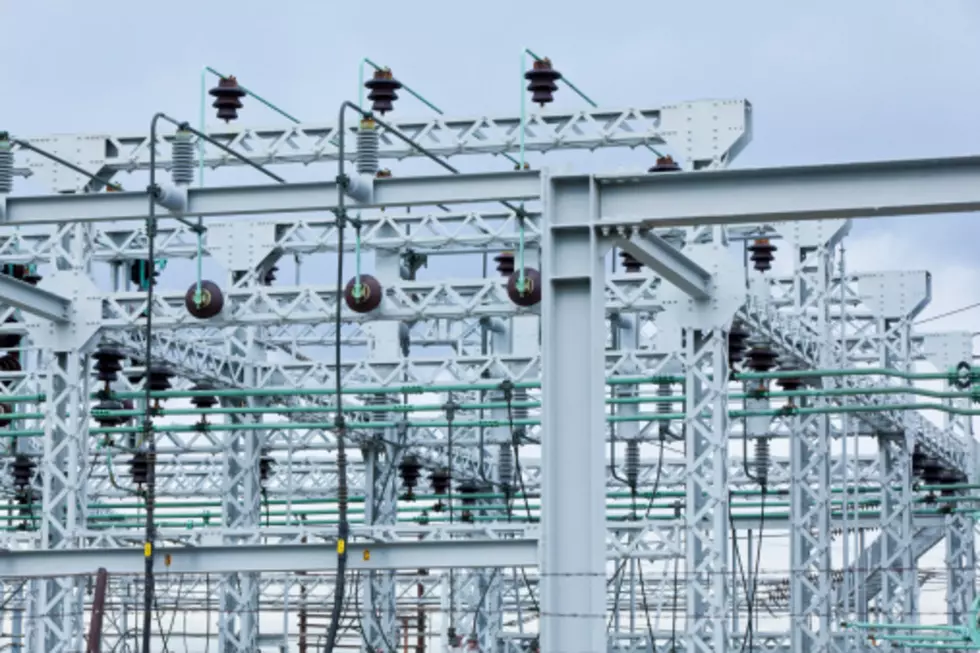![Heat Wave Arrives In New Jersey: Survival Guide [AUDIO]](http://townsquare.media/site/394/files/2012/06/heatwave.jpg?w=980&q=75)
Heat Wave Arrives In New Jersey: Survival Guide [AUDIO]
It’s another summer heat wave, New Jersey. You all know the drill. But in case you have forgotten, here is a refresher course.
This heat wave will keep your electric meter spinning at high speed for the next few days. But an expert says there are ways to economize.



Bonnie Sheppard of Public Service Electric and Gas says you can stay comfortable in air conditioning and save money by using it wisely. She suggests you can save three to five percent on your A.C. costs for every degree that you can raise the thermostat.
Also, she says the same rules apply in your home for keeping extreme heat out in the summer as in the winter to deter extreme cold. Sheppard advises homeowners to seal cracks around windows and doors, and remember to eliminate air leaks around window air conditioners.
Sheppard says they are confident of their ability to deliver in this heavy power use period, and they have been assured that the Northeast power grid, that backs up Jersey utilities,will have enough reserve if needed.
Also, this hot spell can be a big-time health hazard, and state officials are warn Jersey residents to prepare.
State Commissioner of Health and Senior Services Mary O’Dowd says everyone should stay well hydrated, drink plenty of water and non-alcoholic beverages during this heatwave.
If you are outside O’Dowd says you want to try and avoid heat exhaustion or heat stroke, which she describes as, “serious medical conditions.”
O’Dowd says it’s important to check on elderly relatives and neighbors and those with serous health problems to make sure they are coping. In general, she says you should just try to minimize physical activity during the hottest parts of the day.
Stay close to air conditioning, and if you start to feel dizzy or sick, seek medical attention immediately
Keeping Your Car Cool
Source: AAA Mid Atlantic
Heat Can Zap the Life from Batteries – Most drivers think battery problems occur primarily in winter, but summer heat can negatively impact your car’s battery even more than the bitter cold of winter. Heat and vibration are a battery’s two worst enemies leading to internal breakdown and eventual failure. While drivers cannot do much about the heat, they can make sure their battery is securely mounted in place to minimize vibration.
Keep Your Engine Cool – Automobile engines work extra hard in the summer, and it is the cooling system’s job to protect the engine from overheating. In addition, additives in the coolant protect the radiator and internal engine components against wear and corrosion. Without proper cooling system maintenance, the odds of long term engine damage, and a summer time boil over, definitely increase.
Maintain Proper Tire Pressure - Driving on under-inflated tires not only affects the handling and braking of a vehicle, it also can cause tires to overheat and increase the likelihood of a blowout. This problem becomes even more of a concern when road temperatures are extremely high. Tires should be checked when the car has not been driven recently, and they should be inflated to the pressure recommended by the vehicle manufacturer—not the number molded into the tire sidewall. Recommended tire pressures can be found in the owner’s manual or on a sticker normally located on the driver’s door jamb. Some vehicles use different pressures for the front and rear tires.
Check Vehicle Fluids – Engine fluids are essential to keeping a vehicle running smoothly. Most fluids not only lubricate, they also serve as coolants by helping carry heat away from critical components. When fluid levels are low, this cooling effect is reduced, and the possibility of overheating increases. Drivers to should check all vehicle fluids including motor oil, transmission fluid, power steering fluid and brake fluid to ensure they are filled to the appropriate levels. If any fluids need to be topped off, be sure to use the type of fluid specified in the owner’s manual.
Child Safety Heat Tips
source: National Weather Service
Make sure your child’s safety seat and safety belt buckles aren’t too hot before securing your child in a safety restraint system, especially when your car has been parked in the heat.
Never leave your child unattended in a vehicle, even with the windows down.
Teach children not to play in, on, or around cars.
Always lock car doors and trunks–even at home–and keep keys out of children’s reach.
Always make sure all children have left the car when you reach your destination.
Adult Heat Wave Safety Tips
Slow down. Reduce, eliminate or reschedule strenuous activities until the coolest time of the day. Children, seniors and anyone with health problems should stay in the coolest available place, not necessarily indoors.
Dress for summer. Wear lightweight, light-colored clothing to reflect heat and sunlight.
Put less fuel on your inner fires. Foods, like meat and other proteins that increase metabolic heat production also increase water loss.
Drink plenty of water, non-alcoholic and decaffeinated fluids. Your body needs water to keep cool. Drink plenty of fluids even if you don’t feel thirsty. Persons who have epilepsy or heart, kidney or liver disease, are on fluid restrictive diets or have a problem with fluid retention should consult a physician before increasing their consumption of fluids. Do not drink alcoholic beverages and limit caffeinated beverages.
During excessive heat periods, spend more time in air-conditioned places. Air conditioning in homes and other buildings markedly reduces danger from the heat. If you cannot afford an air conditioner, go to a library, store or other location with air conditioning for part of the day.
Don’t get too much sun. Sunburn reduces your body’s ability to dissipate heat.
Do not take salt tablets unless specified by a physician.
The National Weather Service contributed to this story.
More From 92.7 WOBM
![Your Feel Good Moment for the Day [Link]](http://townsquare.media/site/394/files/2012/06/Hugs.jpg?w=980&q=75)
![A Big Announcement From the Blueclaws [Audio]](http://townsquare.media/site/394/files/2012/06/Blueclaws.jpg?w=980&q=75)

![Heat Wave Day 1: NJ Residents Complaining Already [AUDIO]](http://townsquare.media/site/394/files/2012/06/Sun.jpg?w=980&q=75)

![The Great Toilet Paper Debate – Over or Under? [Poll]](http://townsquare.media/site/394/files/2012/06/TP-Roll.jpg?w=980&q=75)



